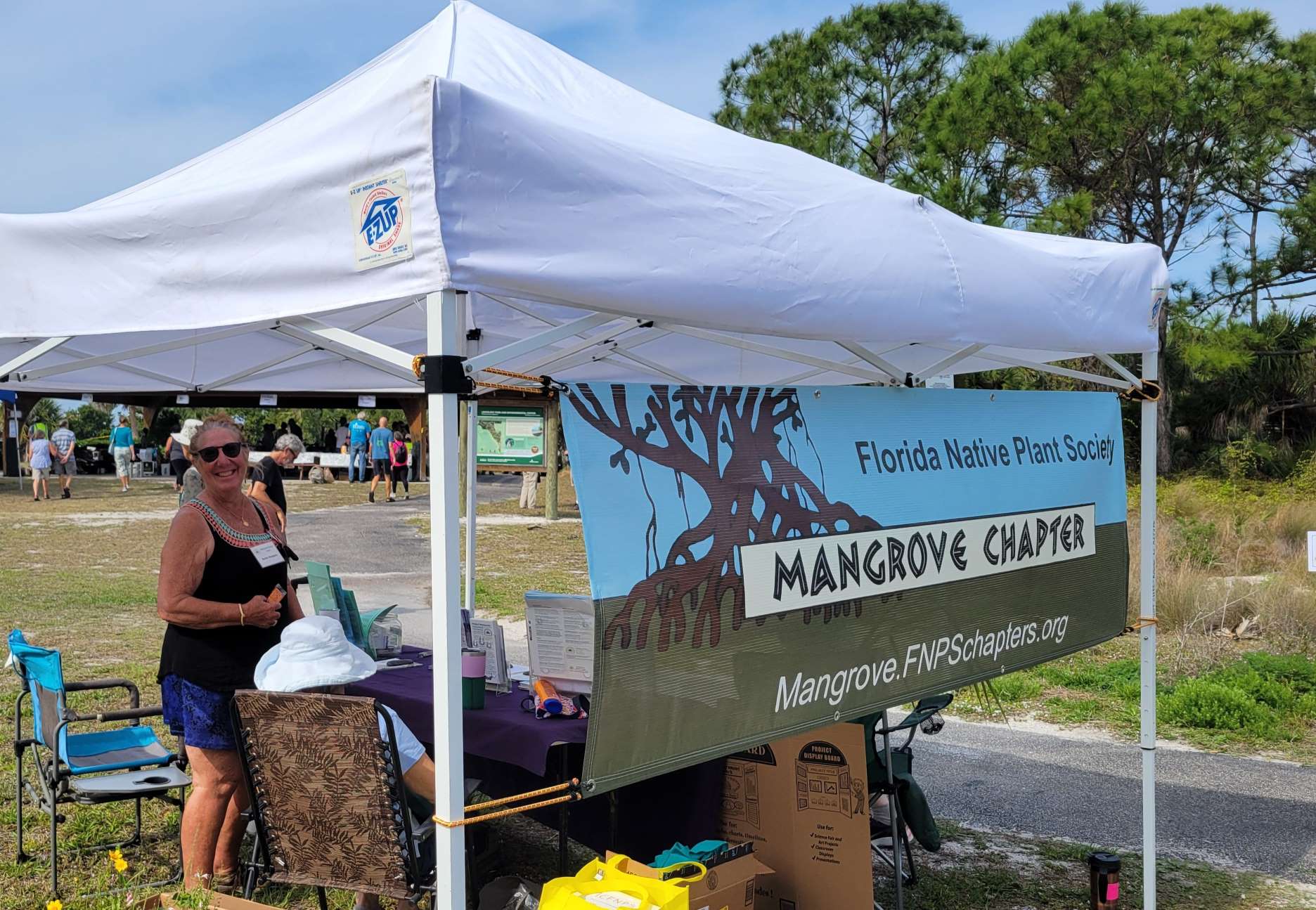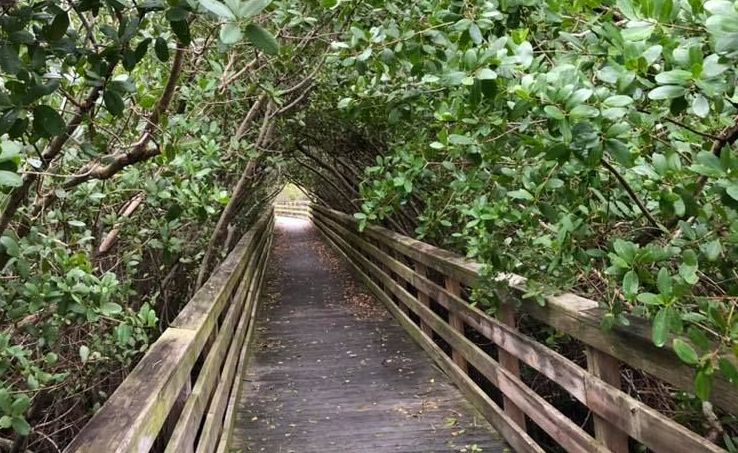
Welcome to the Mangrove Chapter of the Florida Native Plant Society

Board Member Bobbi Rodgers welcoming everyone to Plant Native Day 2024!
The Mission of the Florida Native Plant Society (FNPS) is to promote the preservation, conservation, and restoration of the native plants and native plant communities of Florida. The Mangrove Chapter serves Charlotte County and southern Sarasota County.
Check our News Blog for meeting details, field trips, and announcements.
New here? For informative emails Signup Here.
Find out more about our Grants for Native Plants
Join Our Chapter
Most of our programs and events are open to the public. We rely on the dues that members pay to support these activities. Our dues also help fund native plant grants and help fulfill the mission of the Florida Native Plant Society.
Membership benefits also include access to informative publications, discounts at local native plant nurseries, members-only virtual programs, and more.
Find more information about becoming a member
Come To A Chapter Meeting
Our Chapter meetings are free and open to the public. Each month features an informative guest speaker. Join us to meet friends who share your interests.

Become a Volunteer for Sustainability and Conservation of Native Plants
The Mangrove Chapter has an enthusiastic group of volunteers. Whether it is helping with a plant sale, handing out native plant information at a public event, presenting a program, or helping manage our chapter, volunteers are our life-blood.

Community
An important aspect of being in this type of organization is that you gain a community of like-minded people to support you. We provide means, such as our meetings and field trips. We also provide an active Facebook Group.
Enjoying Nature
We get out into the woods, into our parks, into our swamps, into other wild lands. We have nature walks and field trips led by local naturalists and ecologists. Contribute by being a participant. Help us with our plant surveys. Lead nature walks..
Native Plant Education
Many people are "plant-blind" -- to them plants are the green stuff. What we know little about tends to be valued less. The Mangrove Chapter and FNPS work to teach people about the plants that we live with and why they and the native plant communites around us are important.
What is a Native Plant? Why Plant Native?
Native Ecosystem Preservation and Management
When we convert native plant ecosystems to subdivisions and farms, we lose the native plant communities that they supported. The same thing happens when we withdraw management of the native systems. Some become overgrown and smothered by non-natives, causing us to lose the wildflowers that need sunlight. In other native ecosystems, invasive species outcompete natives for soil and nutrients. Most of the really bad weeds you see are non-native.
Preserving mangrove forests along our coastlines is critical. Removal of mangroves increases the chances that hurricanes will cause increased coastal erosion because the natural thickets of protective mangrove roots are gone.
Learn about this and more in our programs
Sustainability, Bringing Nature Home
Local actions can make a difference. When we change our landscaping to include native plants grown with techniques that minimize the need for added water and fertilizer, we can and do minimize our footprint on our environment.
Supporting Pollinators and Butterflies
Plants are enormously important to insects, a huge number of which rely directly on native plants. Did you know that the larvae of monarch butterflies depend exclusively on native milkweeds? There is a close relationship between insect abundance and native plants because they co-evolved together. Recent studies have shown that we are losing our insects, in terms of both the number of species and the number of insects within those species locally. The Mangrove Chapter programs and programs provided by FNPS are designed to educate our members and the public.
Learn about this and more in our Resources
Supporting Wildlife
Wildlife depend on native plants and native plant habitats. Some wildlife, such as deer and rabbits, are herbivores. Some are insectivores. Most birds feed their babies insects, even species in which the adults are herbivorous, eating mostly grains and fruits. You can attract hummingbirds to a feeder, but they need insects to feed their young. They also need nectar that is more nutritious than sugar water from a feeder, as well as places to nest, to rest, and to hide.
Learn about this and more in our Programs
Diversity Within
Filling our mission is non-political, and it needs all of us. We are non-political. We are multi-racial. We are multi-ethnic. We welcome anyone who shares our mission.
© 2023 Mangrove Chapter, Florida Native Plant Society

 Join Our Facebook Group!
Join Our Facebook Group!